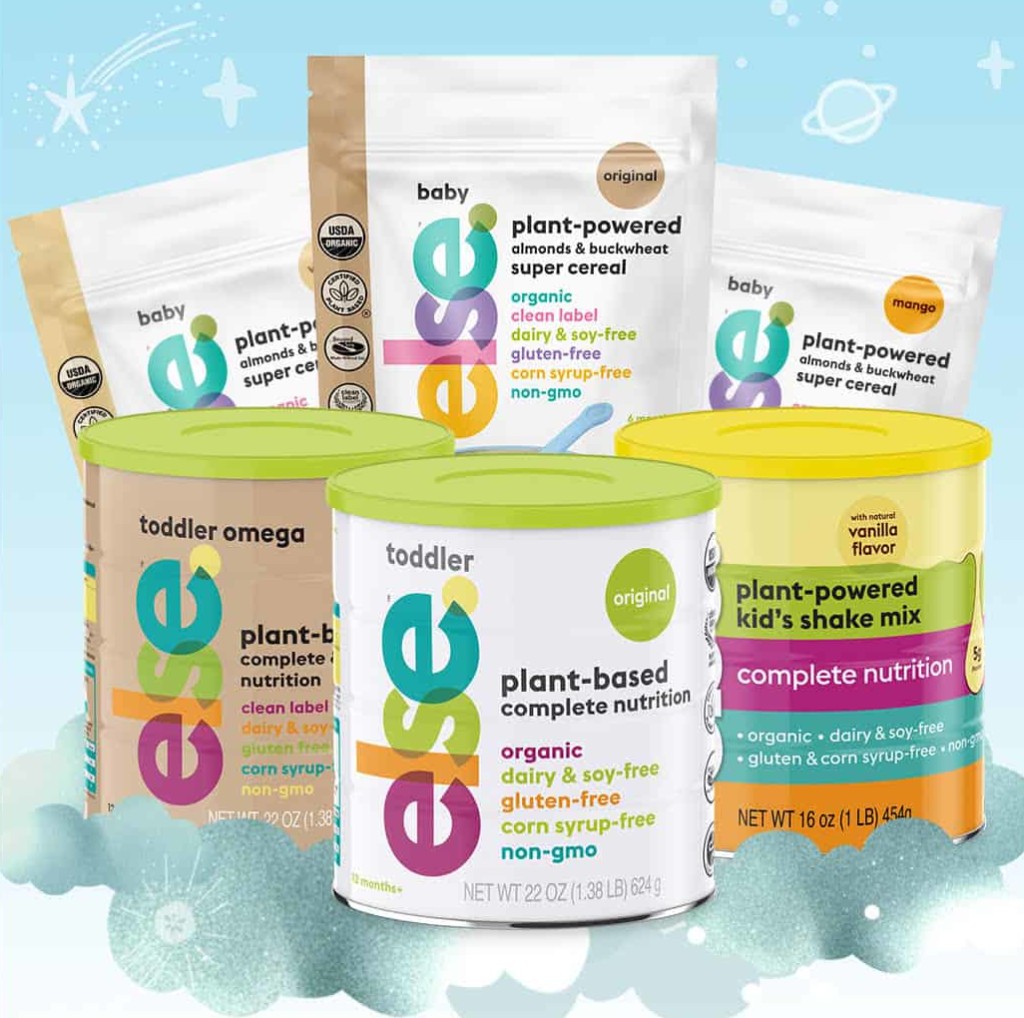Benefits of Organic Baby Food: Why Organic is Best for Your Little One
Updated June 3, 2024.

Wondering why organic baby food is a better choice for your little one? The benefits of organic baby food are numerous: fewer chemicals, richer nutrients, and reduced allergy risks. In this article, we’ll explore these benefits and more, helping you make the best nutritional choices for your baby.
Key Takeaways
Organic baby food helps avoid harmful chemicals, such as synthetic pesticides and GMOs, ensuring a pure start to a baby’s nutritional journey.
Organic foods are richer in essential nutrients, vitamins, and antioxidants due to nutrient-dense soil, which supports overall development and well-being.
Choosing organic baby food supports environmental sustainability through eco-friendly farming practices that prioritize soil health and biodiversity.
Introduction
When it comes to nurturing our babies, the purity of what we feed them is paramount. The journey towards choosing organic baby food is not just about preference; it’s a scientifically grounded decision that impacts:
soil quality
pest control
humane animal practices
the avoidance of additives
It’s a holistic approach to nourishment that sets a solid foundation for long-term health and a palate for good food that could last into adulthood.
At the heart of the debate between organic and conventional baby food lies a deep concern for the well-being of our children. As guardians of their health, we’re faced with making informed decisions that reverberate through their lives. This blog post will guide you through the scientific rationale and the plethora of benefits that organic options offer.
Avoiding Harmful Chemicals in Baby Food
Imagine a world where your baby’s immune system flourishes untouched by harmful chemicals and pesticides. This is the core promise of organic baby food, a sanctuary from the synthetic pesticides and genetically modified organisms that often find their way into conventional baby food. It’s about choosing a path that leads to better health, naturally, starting from the very first spoonful.
Opting for only organic foods for your baby is a testament to your commitment to their well-being. By choosing organic food, with each bite of certified organic baby products, you’re steering clear of artificial fertilizers, toxic metals, and pesticide residues, ensuring a pure start to your baby’s nutritional journey. It sets a precedent for healthy eating habits that can last a lifetime, with minimal processing and maximum care.
Enhanced Nutritional Content of Organic Foods
The vitality of our babies is enriched not just by what is absent in their food, but also by what is present. Organic baby food is a treasure trove of essential nutrients, boasting higher levels of vitamins and minerals due to the nutrient-dense soil in which it’s grown. The result is food that not only fuels their tiny bodies but also fosters their burgeoning minds and bodies.
Antioxidants are the silent guardians in our babies’ diets, and organic foods are rich in these cellular defenders. By choosing organic foods for our babies, we’re providing them with these crucial compounds in abundance, which support their overall development and well-being. And with minimal processing and fewer food additives, we’re ensuring that the nutritional content remains intact, setting the stage for a healthy weight and a thriving life.
Reducing the Risk of Allergies and Health Concerns
The first years of life are critical for developing a strong immune system, and the choices we make can have a profound impact. Organic baby food, free from harmful herbicides and chemical preservatives, presents a pure alternative that can significantly reduce the risk of allergies and health concerns. By introducing infants to natural ingredients, we’re not only nourishing them but also helping shape a robust defense against common infections.
Take, for instance, the carefully curated Square Baby Meals, which incorporate the latest research on early allergen introduction. By opting for such high-quality, organic options from trusted food manufacturers, we’re not only ensuring the finest ingredients for our babies but also giving peace of mind about their future health. The benefits are clear: a well-being that is nurtured by nature itself, free from the constraints of artificial additives.
Supporting Environmental Sustainability with Organic Farming
When we choose organic baby food, we’re not only making a decision for the health of our children but also casting a vote for the planet they will inherit. Organic farming practices are a testament to our commitment to the environment, with techniques that prioritize soil health, water conservation, and biodiversity. This approach goes beyond the immediate needs and looks towards a sustainable future where our planet flourishes alongside our children.
Organic farms stand as pillars of an eco-friendly approach to agriculture. They use less energy, produce fewer carbon emissions, and sequester more carbon compared to conventional farming methods that rely on synthetic fertilizers. By opting for certified organic baby products, we’re supporting farming practices that are kinder to the earth, ensuring that our babies grow up in a world that values and protects its natural resources, including organic produce.
Better Taste and Variety in Organic Baby Food
The joy of watching a baby’s face light up at the taste of something truly delicious is unparalleled, and organic baby food often leads to such heartwarming moments. With a more natural and authentic taste, organic options encourage little explorers to enjoy a broader range of flavors. This early exposure not only delights their taste buds but also sets the stage for a lifetime appreciation of wholesome, nutritious foods.
The variety offered by organic baby food is not just about taste—it’s about discovery. By introducing a wide array of fruits and vegetables through organic options, we’re adding a rainbow of flavors to our babies’ diet. This not only enhances their meals but also helps them develop a palate for diverse, healthful options that will serve them well throughout their lives.
Key Differences Between Organic and Conventional Baby Food
As parents, we’re often faced with the question: What sets organic baby food apart from its conventional counterparts? The answer lies in the absence of genetically modified organisms, artificial preservatives, and synthetic pesticides in organic options. These key differences are not just labels on a package; they represent a commitment to purity and health that conventional baby food cannot match.
Certified organic baby products in countries like Australia set a gold standard, guaranteeing freedom from genetically modified ingredients and adherence to strict guidelines. In contrast, conventional methods may rely on preservatives to prolong shelf life, potentially compromising the freshness and wholesomeness of the food we give to our babies. The choice is clear: opting for organic is choosing the best for our children’s health and future.
How to Identify Certified Organic Baby Products
Navigating the world of baby food can be daunting, with myriad terms and labels that may seem interchangeable. However, when it comes to certified organic baby products, the distinction is clear and crucial. Look for the certified organic label—a guarantee that the product meets the stringent standards set by organic certification bodies. This label is your assurance that the food you’re giving your baby is free from artificial fertilizers, pesticides, and GMOs.
Be wary of products that claim to be ‘all-natural’ or boast ‘100% natural ingredients’ without the certified organic label. These terms can be misleading and do not ensure the same rigorous standards as certified organic products. By checking for certification labels, you can make an informed choice, selecting truly organic options that support your baby’s health and well-being.
Best Organic Food Choices for Babies
When it comes to feeding our babies, we want to provide the best nutrition that supports their growth and development. The best organic food choices for babies span a range of categories, including:
Fruits
Vegetables
Grains
Proteins
Each offering unique benefits that contribute to a well-rounded and nutritious diet.
Let’s explore some of the top organic picks in each category, from the vibrant flavors of fruits to the hearty sustenance of grains and proteins.
Organic Fruits
Organic fruits are nature’s sweets, packed with vitamins, fiber, and antioxidants that are essential for a growing baby. Some examples of organic fruits that are not just delicious, but also provide the nutrients needed for healthy development, include:
Bananas
Avocados
Berries
Apples, which are high in fiber and vitamin C, supporting digestion and boosting immunity
Blueberries, known for their high anthocyanin content, which aid in brain development
A sip of organic mixed fruit juice can be a delightful way to introduce a variety of fruits into a baby’s diet. With no added sugars or preservatives, it’s a healthy and tasty beverage choice for little ones 12 months and older, offering them a burst of essential vitamins and antioxidants in their natural state.
Organic Vegetables
The verdant world of organic vegetables offers a cornucopia of nutrients that are pivotal for a baby’s growth. Carrots, brimming with beta-carotene, are not only tasty but also vital for maintaining healthy vision. Spinach, rich in iron and folate, plays a crucial role in the formation of red blood cells, supporting overall development.
Organic vegetables are not just about the health benefits—they’re about cultivating a palate that appreciates the rich tapestry of flavors nature has to offer. Introducing a variety of vegetables early on can pave the way for a lifelong love of nutritious, delicious foods, setting a cornerstone for dietary well-being.
Organic Grains and Proteins
The building blocks of growth, organic grains, and proteins are indispensable in a baby’s diet. Whole grains like quinoa are a phenomenal source of complete protein, offering all nine essential amino acids necessary for a baby’s muscle development. Lentils, another organic powerhouse, are teeming with fiber and protein, ensuring that our little ones have the energy and digestive support they need.
Incorporating these organic grains and proteins into baby food can lay a foundation for healthy eating habits that extend well beyond the high chair. They provide not only the nutritional content required for our babies’ physical growth but also the satisfaction of a well-balanced, wholesome meal that nurtures them from the inside out.
Common Misconceptions About Organic Baby Food
Parenting is often a journey filled with myths and misconceptions, especially when it comes to feeding our babies. One such myth suggests that fruit juice is essential for hydration, but in reality, its high sugar content makes whole fruits the superior choice. Another common fallacy is the belief that babies need low-fat foods; however, fats play a crucial role in providing energy and supporting neurological development.
Another misconception is that a baby’s first food should be infant cereal, but there’s no one-size-fits-all approach to starting solids. Babies can begin with a variety of foods, including:
Meats
Vegetables
Fruits
Grains
There’s no mandatory starting point with cereal. Additionally, parents don’t have to choose between spoon-feeding and baby-led weaning; a combination of both can provide a balanced introduction to eating.
By challenging these myths, new parents can make more informed choices that align with their baby’s nutritional needs.
Try our Else Toddler Organic Formula for your Toddler
As our babies grow into toddlers, their nutritional needs evolve. Else Toddler Organic Formula is specifically designed to cater to the unique requirements of children aged 1-3 years, offering a plant-based, lactose-free, and dairy-free complete nutrition drink. With proteins derived from almonds and buckwheat, this organic formula provides the essential amino acids necessary for a toddler’s continued growth and development.
Else Toddler and Kids products are thoughtfully tailored for different age groups, ensuring that the nutritional composition meets the specific needs of each stage. The Else Toddler Plant-Based Complete Nutrition Drink is a balanced blend of whole plants that delivers all three macronutrients alongside more than 20 vitamins and minerals, making it a satisfying choice for your growing child.
Summary
In conclusion, the choice to feed our babies organic food is a profound one. It touches on the health of our children, the well-being of our environment, and the future of our planet. By embracing organic options, we offer our babies the purest start to life, with benefits that extend far beyond their first meals. As we strive to make informed decisions, let us remember that choosing organic isn’t just a trend—it’s a commitment to a healthier, more sustainable world for our little ones.
Frequently Asked Questions
What makes organic baby food different from conventional baby food?
Organic baby food is made without synthetic pesticides, herbicides, and artificial fertilizers, emphasizing natural and environmentally sustainable farming practices. This results in a purer and often more nutritious product compared to conventional baby food.
Can organic baby food help prevent allergies?
Yes, introducing organic baby food early can help prevent allergies by exposing infants to a variety of natural nutrients without artificial additives.
Are there environmental benefits to choosing organic baby food?
Yes, choosing organic baby food offers environmental benefits by prioritizing soil health, water conservation, and biodiversity. This makes it a more sustainable and eco-friendly choice.
How can I be sure a baby food product is truly organic?
Make sure to look for certified organic labels on the packaging to ensure that the baby food product meets strict organic farming standards and is genuinely organic. This will give you peace of mind about the product's authenticity.
What are some organic food choices I can start with for my baby?
You can start with organic fruits like bananas, avocados, and berries, vegetables like carrots and spinach, and grains and proteins like quinoa and lentils to provide a variety of nutrients for your baby's growth and development. These choices offer a good balance of essential nutrients.
The content and advice provided in this article is for informational purposes only and is not a substitute for medical diagnosis, treatment, advice for specific medical conditions. Always consult a pediatrician to understand the individual needs of your child. The article expresses the views of the brand editor.









